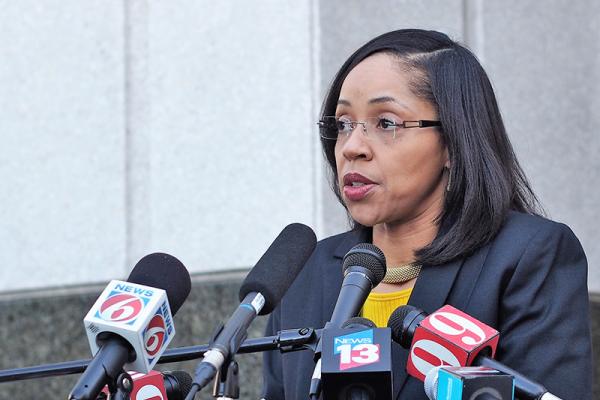In recent months, a Florida state attorney carefully reviewed the death penalty with a particular focus on the goals of criminal justice: promoting public safety, serving the needs of murder victims’ families, and using public dollars in a wise and effective manner.
On all these measures, Aramis Ayala judged that the death penalty proves ineffective and morally indefensible, and for those reasons, she announced that she would not seek death sentences in the future.
Sadly, on April 3, Florida Gov. Rick Scott took 21 more first-degree murder cases away from the Orange-Osceola state attorney.
For some Florida officials, it seems, the death penalty can do no wrong. They back death penalty statutes even if warned they will get struck down, which Scott and the Florida Legislature did when supporting last year’s ill-fated death penalty fix. And they continue to back Florida’s death penalty no matter how many innocent people end up on death row, how much it costs and what it puts murder victims’ families through.
Ayala described Florida’s death penalty “as the cause of considerable legal chaos, uncertainty and turmoil.” It is difficult to argue with that assessment. Florida’s death penalty has been struck down as unconstitutional three times in its history, and twice last year alone.
The purpose of law enforcement is to protect the public and save lives. But, as Ayala pointed out in her statement, the “death penalty has no public safety benefit. There is no evidence that death sentences actually protect the public.”
Indeed, a comprehensive analysis of deterrence studies by the National Academy of Sciences found no evidence that the death penalty impacts murder rates in either direction. Ayala emphasized that her office pursues evidence-based practices, not policies such as the death penalty whose deterrent effect rests on faith alone.
Despite the oft-repeated claim that the death penalty delivers justice to murder victims’ families, Ayala recognized that that’s not true in reality.
“I’ve learned that the death penalty traps many victims’ families in a decades-long cycle of uncertainty,” said Ayala. “I cannot, in good faith, look a victim’s family in the face and promise that a death sentence handed down in our court will ever result in execution.”
We have an obligation to victims’ families to ensure that criminal justice policies are honest and help them rather than hinder them in healing. Florida’s death penalty utterly fails in these goals, given the frequent delays and reversals in capital cases, which keep families stuck in the legal process.
Finally, Ayala noted the high cost of death sentences, which run hundreds of thousands and sometimes millions of dollars more than incarcerating someone for life. Some say that a policy’s cost is not a moral issue, but I beg to differ. Where you spend your money shows where your priorities lie. Budgets are always moral documents. When there are so many pressing community needs, it is irresponsible to spend resources on ineffective policies like the death penalty.
“By not pursuing death sentences in a handful of cases,” Ayala rightly argued, “we can spend time pursuing justice in many more cases.”
Ayala makes a powerful argument that the death penalty embodies mistaken priorities for the Orlando community she represents. In its push to carry out the ultimate punishment, Florida has harmed victims’ families and wasted valuable resources that could have enhanced public safety.
These arguments strike a personal note with me, a former pastor and now a Florida-based author and networker among clergy nationwide. A few months ago, some friends and I spent a weekend with Christian activist Shane Claiborne, author of Executing Grace, a book on the death penalty. Since 1976, Claiborne explained, about 1-in-9 death row inmates has been exonerated. Shane asked us to imagine what would happen if a medicine killed one out of nine patients.
“It would be outlawed immediately!” we replied.
We then visited with Bryan Stevenson, the founder of the Equal Justice Initiative in Alabama. Stevenson helped us understand the history of the death penalty in the U.S. and then introduced us to one of his employees, Anthony Ray Hinton. Anthony told us his personal story of spending nearly 30 years on Alabama’s death row. In 2015, he was exonerated and freed.
When I heard of State Attorney Ayala’s decision to stop seeking death against people in Florida, I couldn’t help but think of Anthony’s heart-wrenching story and Shane’s sobering statistic.
That’s why I believe Ayala is right. She is leading Florida out of a legal and moral mess and into a better future.
If Scott and others who oppose her will consider with open minds and hearts the compelling legal and moral reasons for her decision, they will come around … or they will remain stuck on the wrong side of history, wisdom, and morality.
Got something to say about what you're reading? We value your feedback!

